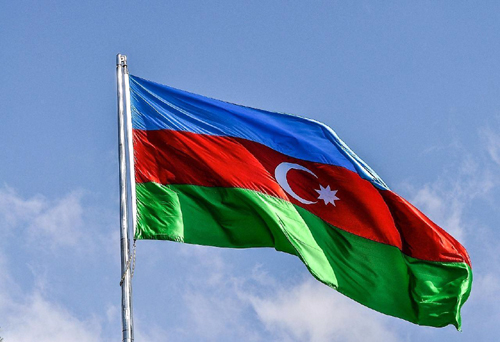The most recent picture of current global and regional developments raises some questions. For instance, what brings together in the South Caucasus those who have now become adversaries as a result of the similar situation in Ukraine?
Those concerned about Donetsk, Luhansk, and Crimea in Ukraine, Abkhazia and South Ossetia in Georgia, once turned a blind eye to the Armenian occupation of Azerbaijan’s Karabakh and surrounding regions and urged Baku to reconcile with the then reality.
Azerbaijani troops
on sovereign territories
In his recent letter to U.S. President Joe Biden, President Ilham Aliyev said that Azerbaijan is a state pursuing independent policies based on the will and interests of its people.
“The liberation of Azerbaijan’s historical lands ended almost 30 years of Armenia’s military aggression against Azerbaijan, as our country itself implemented the relevant UN Security Council resolutions that had remained on paper for almost 30 years. As an adherent of peace, we are ready to launch negotiations on a peace treaty with Armenia based on fundamental principles of international law, such as the territorial integrity, sovereignty and inviolability of the internationally recognized borders of our country. We do hope that the United States will support Azerbaijan’s peace agenda based on a vision for the future,” he said.
Azerbaijan continues its efforts to clarify the location of its positions and deployment points in the Karabakh region. The November 2020 ceasefire agreement signed by Baku, Yerevan, and Moscow, as well as the four UN resolutions adopted in the early 1990s, demand all Armenian armed forces to leave Azerbaijan’s internationally recognized territories. And this has not been fully completed.
A few days ago, in response to senior U.S. official Jalina Porter’s recent statement of “concern” over the movement of Azerbaijani troops on the territory of Karabakh, Baku stressed that the United States, as the co-chair of the OSCE Minsk Group has not taken any effective steps to end the military aggression of Armenia against Azerbaijan, which has lasted nearly for 30 years.
“Azerbaijan has restored its territorial integrity on the basis of international law and ensured the implementation of UN Security Council resolutions on its own. Currently, the administrative-territorial unit called ‘Nagorno-Karabakh’ does not exist, but there are Karabakh and Eastern Zangazur economic regions, which are part of Azerbaijan. It is irresponsible for a U.S. State Department official to make such a statement on the basis of fake Armenian propaganda. We would like to emphasize once again that the Republic of Azerbaijan is on its sovereign territories,” the Azerbaijani Foreign Ministry recalled.
Double standards
versus justice
It should be noted that other OSCE Minsk Group co-chairing countries, Russia and France, had a similar reaction. It should be emphasized that applying double standards to Azerbaijan, which is in the same boat with Ukraine is an answer to the above question. However, pursuing double standards while addressing problems of similar nature is incompatible with restoring global justice.
In a post on his official Twitter account, Azerbaijani Consul-General to Los Angeles Nasimi Aghayev shared a similar position.
“Selective application of international law by great powers, especially that of the principles of territorial integrity and inviolability of borders, has brought nothing but instability, wars and bloodshed, practically destroying post-WWII rule-based world order. Time to rectify,” the diplomat stressed.
Azerbaijani ambassador to the United States Khazar Ibrahim also underlined this “hypocrisy”.
“Hypocrisy at work. The statements by the [U.S.] State Department and the [Russian] Defence Ministry are almost identical regarding Azerbaijan these days. Apparently, one needs to be a secular and tolerant majority Muslim country with independent policies based on international law to unite the U.S. and Russia,” he tweeted.
Meanwhile, Turkish media reported that Armenia had handed over combat aircraft to Russia for anti-Ukraine operations. On March 25, four Su-30 fighters are said to have taken off from Armenia and flown to Russia to be used against Ukraine. – Azer News
- Latest
- Trending





